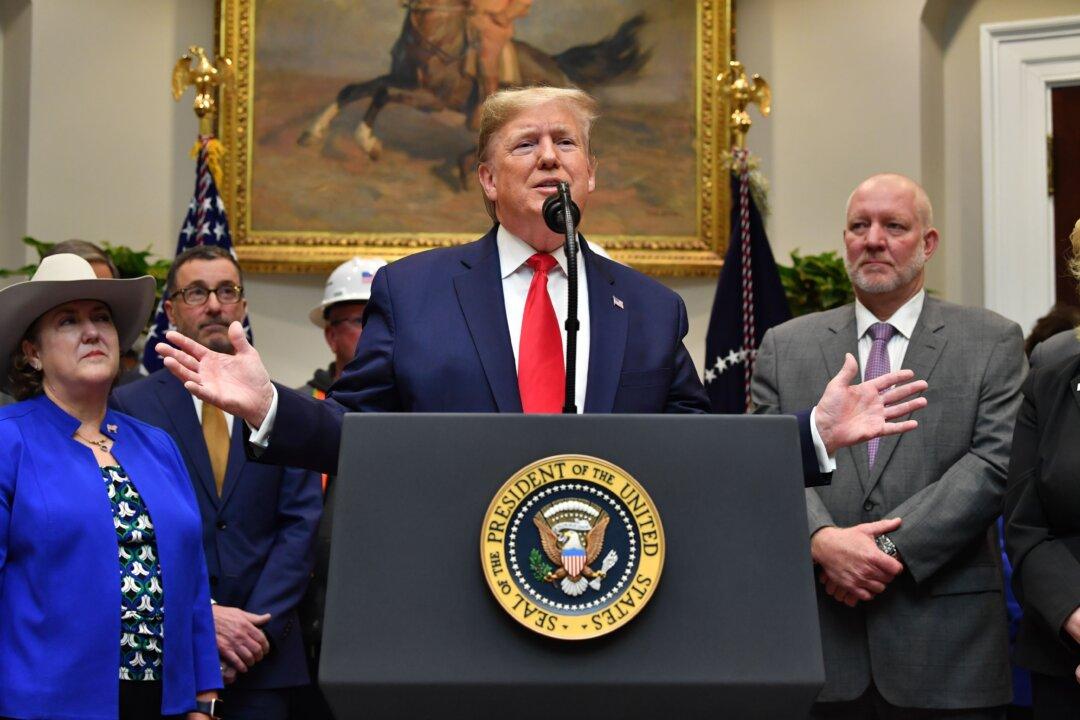WASHINGTON—Business and labor groups have banded together to support President Donald Trump’s recent proposal to streamline the permitting process for major infrastructure projects, which is already facing legal challenges.
Led by the U.S. Chamber of Commerce, 45 organizations representing broad interests throughout the country have formed a coalition to back the proposed reforms to the National Environmental Policy Act (NEPA). The Southern Environmental Law Center has sought an injunction in federal court blocking the Trump administration’s planned changes.





